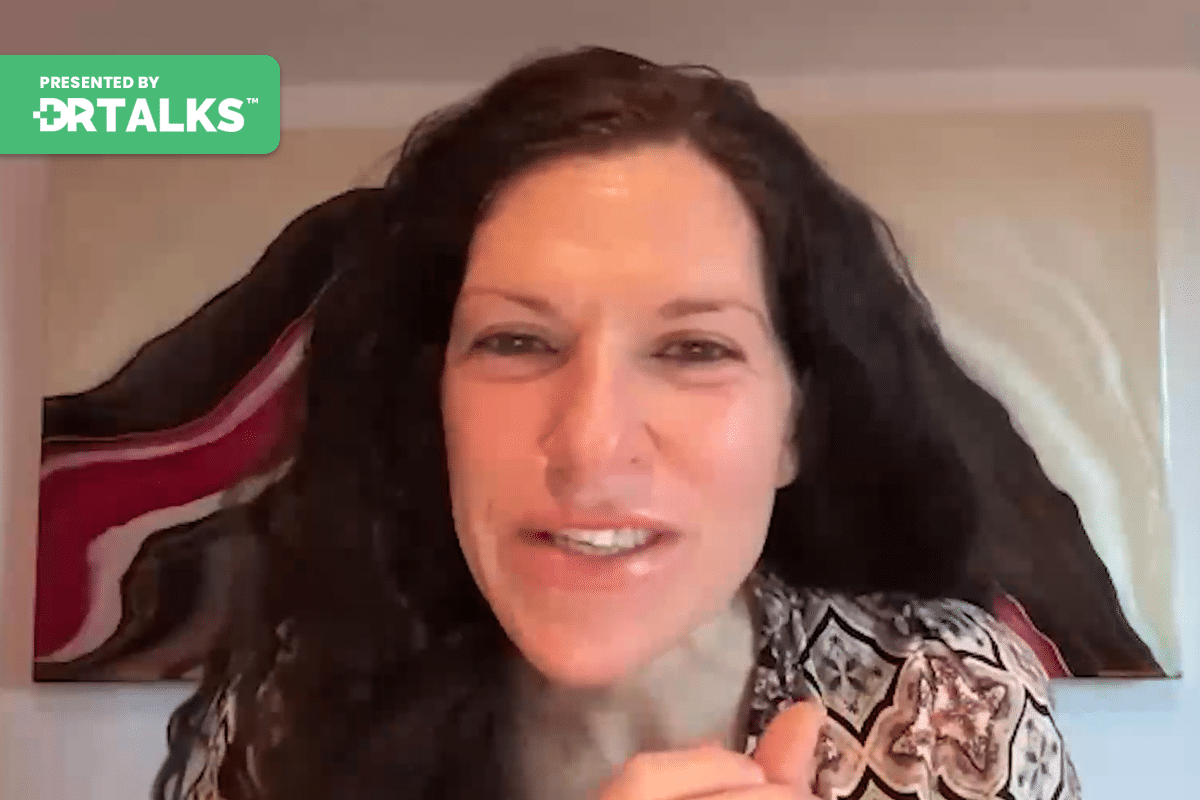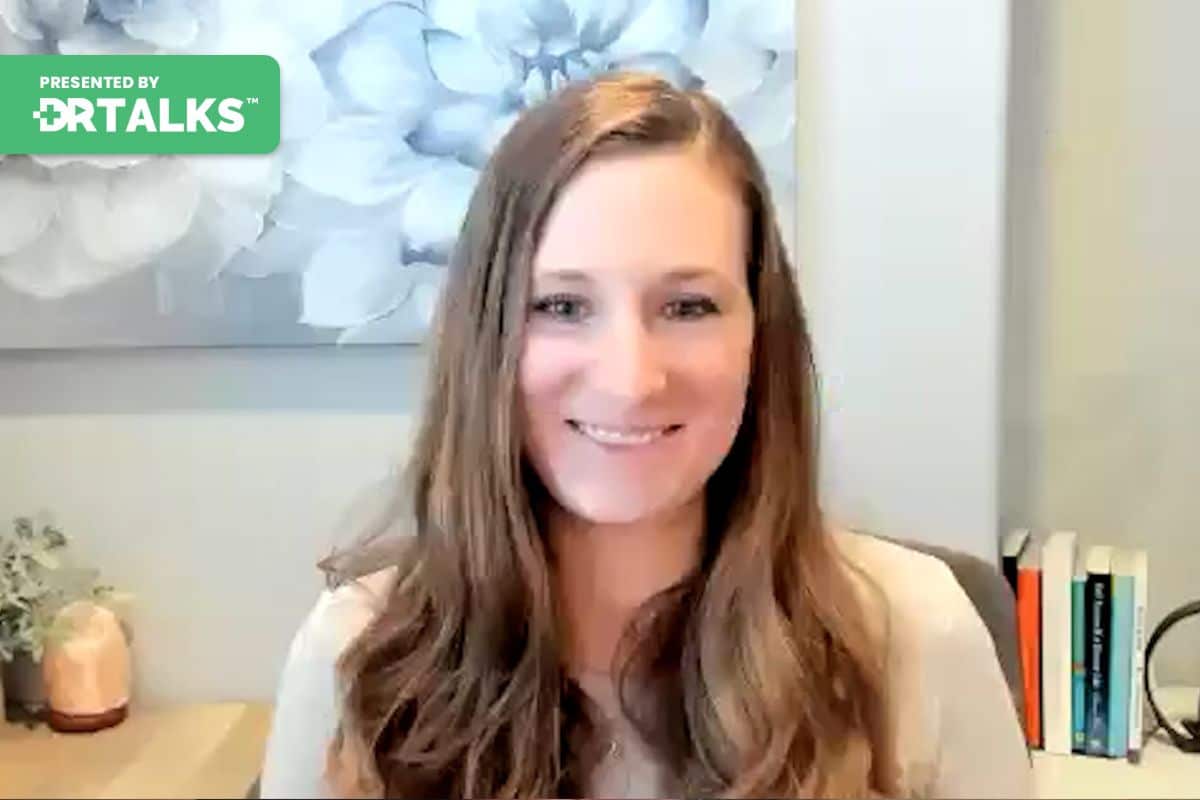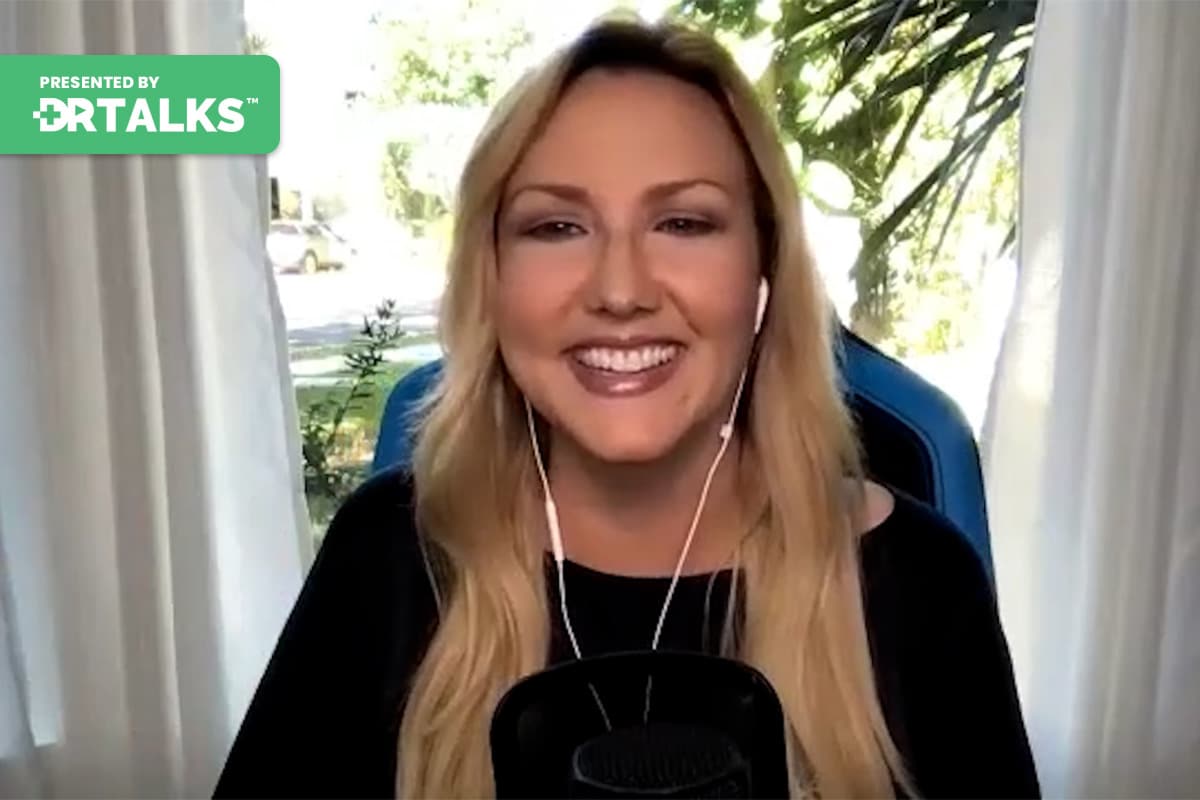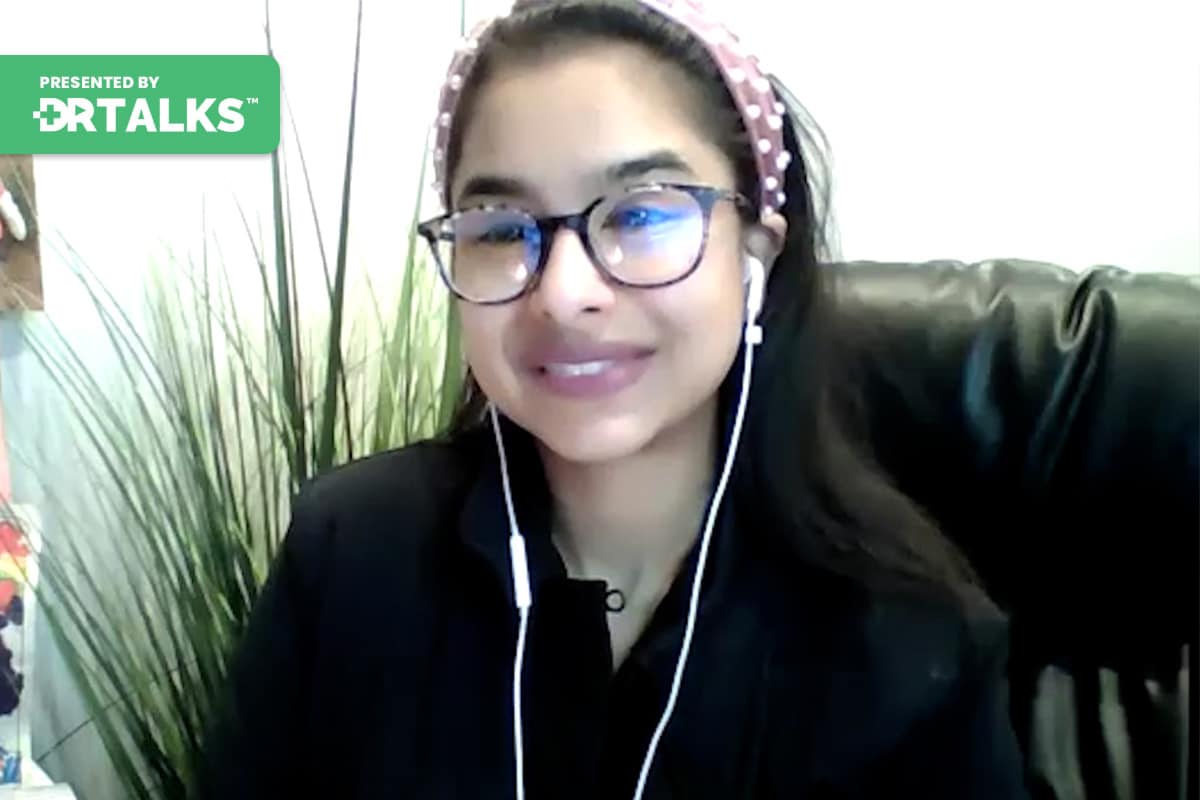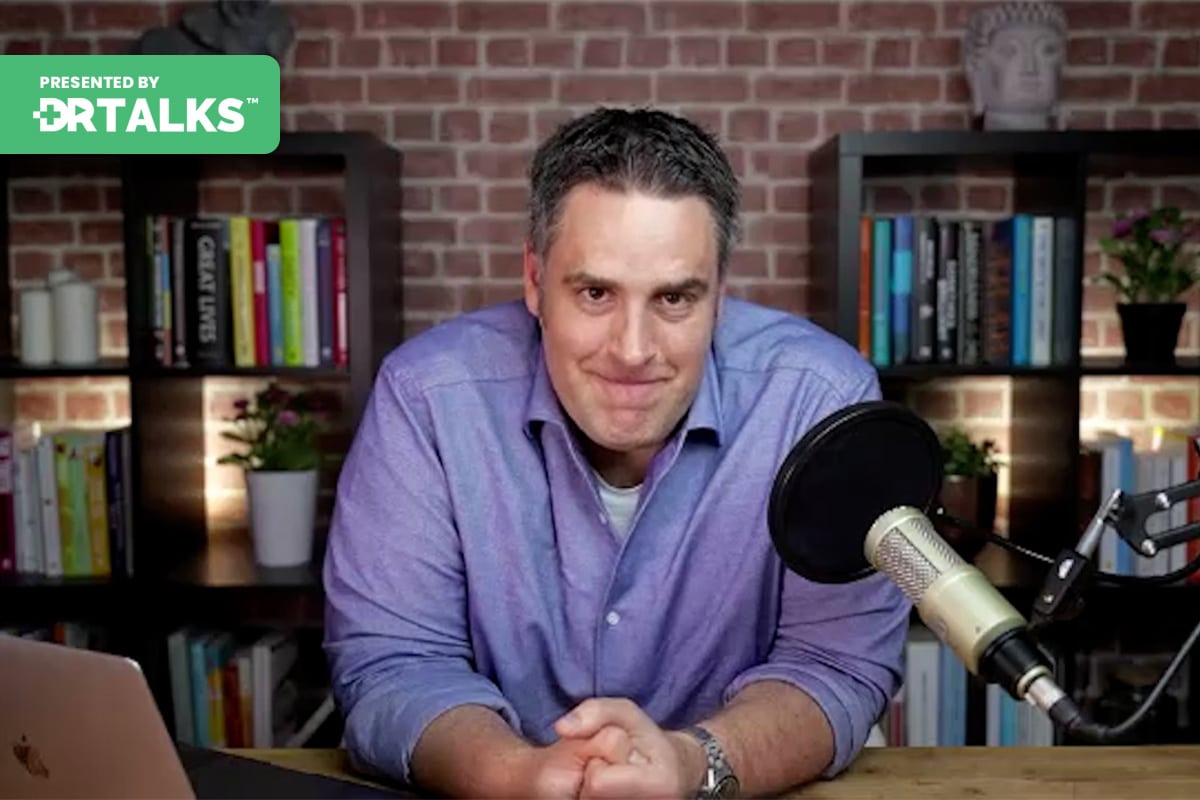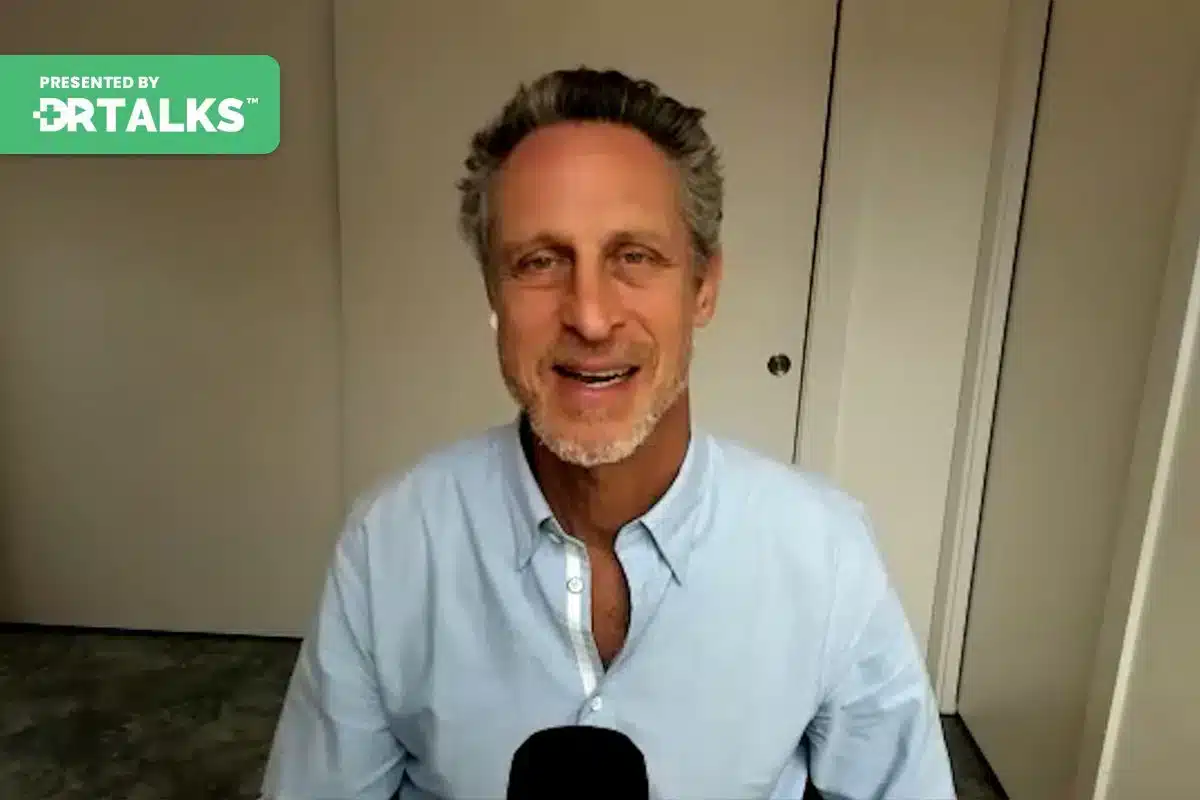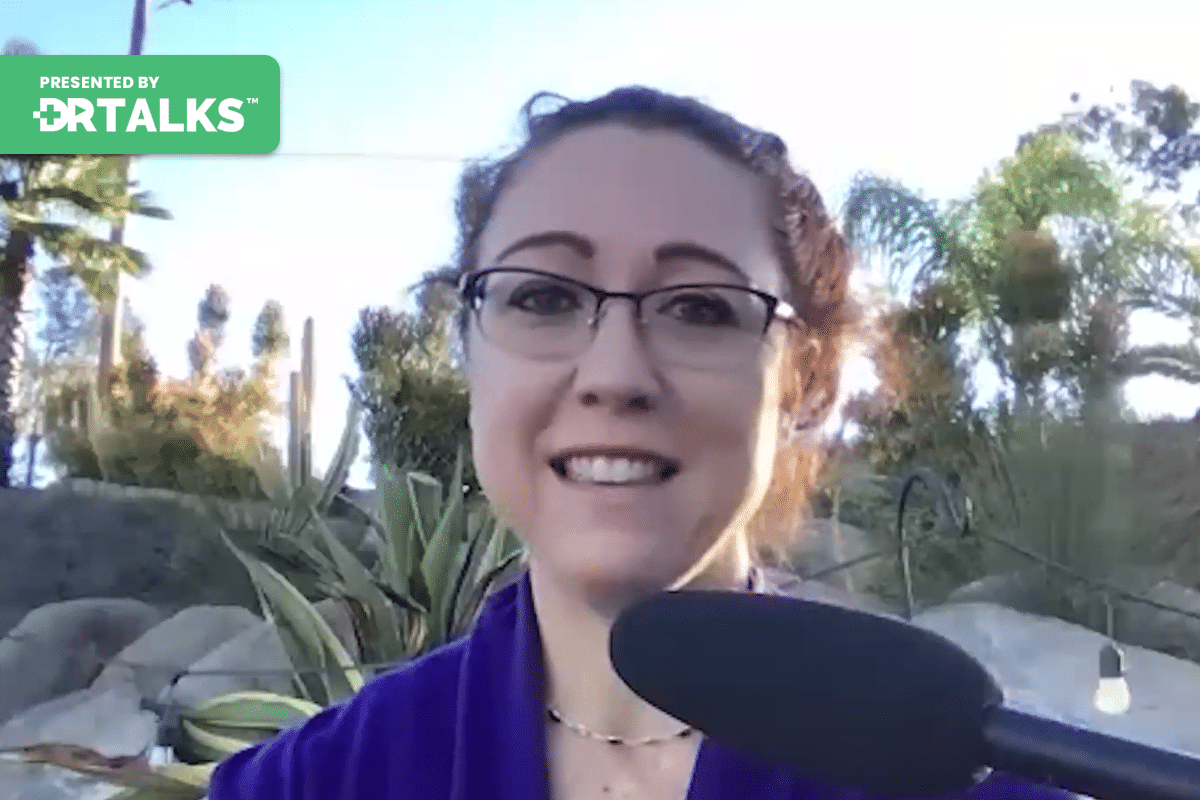Join the discussion below
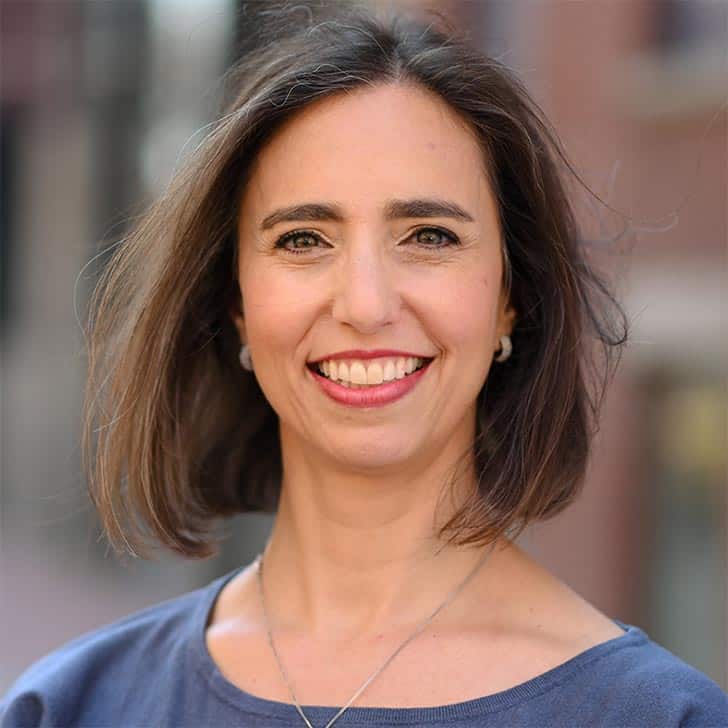
Wendie Trubow, MD, MBA, IFMCP is a functional medicine gynecologist with a thriving practice at Five Journeys, and is passionate about helping women optimize their health and lives. Through her struggles with mold and metal toxicity, Celiac disease, and other health issues, Dr. Trubow has developed a deep sense of... Read More
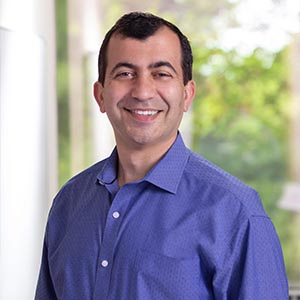
Edward Levitan, MD, ABIOM, IFMCP
As a double board-certified physician, I don’t just focus on the physical symptoms of my patients. I believe that their overall well-being is a result of the harmony between their body, mind, and spirit. My extensive training in both traditional Western medicine and Eastern practices like acupuncture and Shiatsu allows... Read More
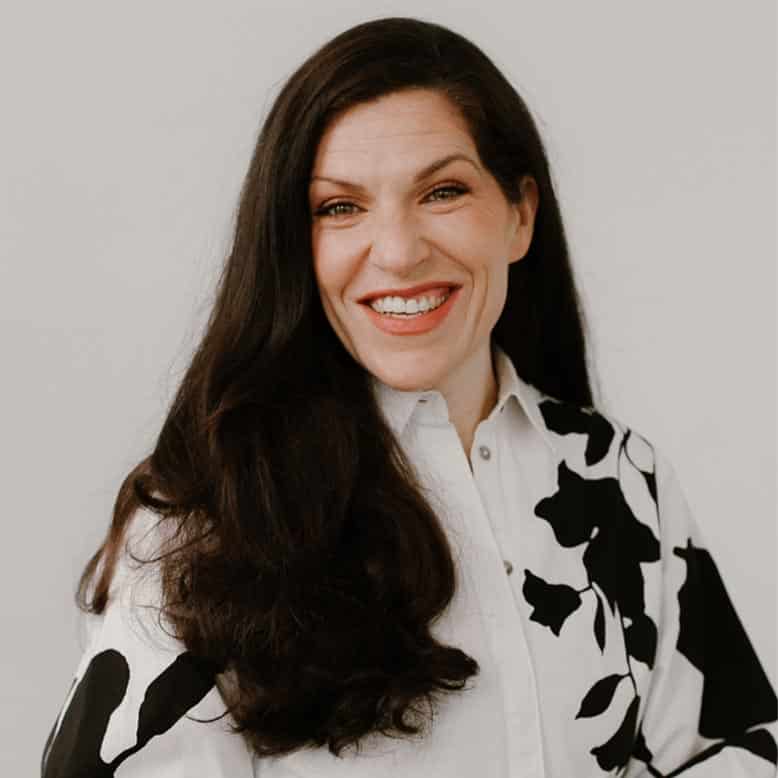
Dr. Christine Schaffner is a board-certified Naturopathic Doctor who has helped thousands of people recover from chronic or complex illnesses. Through online summits, her Spectrum of Health podcast, network of Immanence Health clinics, and renowned online programs, Dr. Schaffner goes beyond biological medicine, pulling from all systems of medicine and... Read More
- The importance of a full body approach to healing
- The importance of quality sleep, and its impact on brain health
- Ways to improve sleep quality, brain cleaning and overall health
Related Topics
Autoimmunity, Bio Field Science, Bio Regulatory Medicine, Bodys Innate Intelligence, Cell, Chronic Illness, Detox, Dna, Environment, Environmental Toxins, Extra Cellular Matrix, Fascia, Lymphatic System, Mitochondria, Naturopathic Medicine, Sleep, Symptomology, Terrain Medicine, TreatmentWendie Trubow, MD, MBA, IFMCP
Welcome to this episode of the environmental toxicants, auto immunity and chronic diseases summit. Wendie Trubow, MD, MBA And this is my co host Ed Levitan, MD And we’re your hosts of today’s episode. Our guest today, I’m super psyched. I’m every day I’m psyched but our guest today is Dr. Christine Schaffner. She is a board certified naturopathic doctor who has helped thousands of people recover from chronic or complex illnesses. She completed her undergraduate studies in pre medicine and psychology at the University of Virginia in Charlottesville. So an east coast gal and her doctor of naturopathic medicine at Bastyr University in Seattle. So we lost her to the west coast and now she works to help patients reclaim their wellness and reveal their brightest light. Welcome Christine, we’re so psyched, you’re here.
Christine Schaffner, ND
Such an honor. It was so fun meeting you at a conference recently and I’m so glad to be on the summit with you.
Wendie Trubow, MD, MBA, IFMCP
Yeah. So let’s dive in you. We were going to talk today about sort of big to small, right the terrain of health and how we navigate it and even evaluate it and then later we’ll dive into something even cooler.
Christine Schaffner, ND
That sounds good. I’m happy to dive in there if you want me to start. Yeah absolutely. So you know you and I but all of us see Very similar patients right and people who probably have seen 10-20 doctors been unfortunately sick for almost decades and there is still this conversation of you know what’s wrong with me, what’s my diagnosis. How do I come out and where I really try to educate my patients is we’re entering a new paradigm, right? When we really recover the body from chronic illness, we have to take this big picture approach because even though these are complex chronic illnesses, often there’s an elegance and simplicity that I think we often, you know, miss, and I always start being a naturopathic physician, I always start with that the body has this innate intelligence, right? And we have this amazing self regulatory capacity. But life, right. Life is a series of events that can affect our body’s ability to self regulate and heal. So we might focus on Lyme disease or mold illness or mercury toxicity or retroviruses or long haulers or, you know, trauma from when we were seven and all paints a picture, but but what we’re working on is not making the body sterile and free from every bug or being free from every trauma or free from every toxicants. But how do we adapt and regulate in really the modern terrain. And again, I’m studying naturopathic medicine often that’s where I come from. But often my approach comes from bio regulatory medicine, which comes out of Europe plus the field of bio field science, which I think is the future of medicine. And so we’re looking at the terrain from the D. N. A. To the field and how we can adapt and respond to the ever changing environment that we’re all up again, So I’m happy to unpack that. But I’m a big terrain medicine person which is very different from you know germ theory and just one bug takes you down. So that’s where I’m always starting with patients.
Wendie Trubow, MD, MBA, IFMCP
I have a question. Our kids went to a jewish school and they were trained to be like sort of socratic. They say I have a question and now I have a question. I’ve been trained by my Children. So was this personal for you at all? I mean how did you get into this? What inspired you to go down this path?
Christine Schaffner, ND
Yeah. You know that’s a great question and you know we all are shaped by our childhood and the people around us and our mentors and many life events and you know what you know my my father is an oncologist and my mother is a nurse but she ended up being a nurse educator and the you know director of Quality and Education in a hospital setting. So I had a lot of different feedback growing up. I mean I would be my father’s office and I would see him you know kind of usher people to death really through the cancer process and I I kept on having questions about that and I was like one of those you know kids in high school back when we had bookstores to remember the big bookstores. I would be in like the you know spirituality and reading books about healing and just wanting to ask the deeper question like why are we fighting this thing? Why don’t isn’t there another way? You know, maybe it’s just my optimistic nature that I am always gonna you know, be from that perspective of there’s unlimited potential life and we often I think because of just are you know perspective, we fall short of what is possible every day, we just kind of limit ourselves, right? And so I had that medical background I was naturally really enjoying and good at science and then I came to a position, you know, I went to U. V. A. It was East coast. No no you know knock on you all. But you know the east coast, it’s all a little bit status driven a little bit. What are your credentials? You know what really makes you important, right?
Wendie Trubow, MD, MBA, IFMCP
We live in Boston where there’s man’s greatest hospital. So we know what you’re talking about.
Christine Schaffner, ND
about this right? You know, so you know, leap of faith and my young younger years to become a naturopathic doctor, there was a lot of, even in my young life you know dealing with the ego like of what’s a naturopath that is that a real doctor is that could really be the path to healing, but I am really I’m grateful that I took this, you know journey into naturopathic medicine, it was the perfect career for me because it gave me not only the science background, but really what I was seeking in life was the bigger tool set in the tool kit that naturopathic medicine offers me. I have so much respect for my medical doctor colleagues and PhD colleagues and what you do is incredible. Often I think about, you know, often the conversations I have with my friends and colleagues. As you know, we really need to have more discussions because you all have such amazing training and amazing brains, but your toolkit is so limited, not you all the profession, right? And like, you know, you go to a neurologist, they afford drugs and potentially an intervention, right? And here our problem is we have thousands of tools and our job as to how do we narrow that down and make that accessible for the person and the treatment room. So I came from a family medicine.
I was on a journey of pioneering this new kind of field of medicine within my family and I had some amazing mentors, I’ve had a lot of amazing experiences. I feel very lucky. When I launched my career, I saw some of the toughest patients who have seen many doctors has done so many things. So I’m in the land of treating the people outside of the box, treating the people who’ve already been off of gluten already gone to the Mayo clinic already, you know, done that world, I respect that I’m forced to use my, you know my skill set, my brain to look when that doesn’t work, where do we go? And that’s why I’m, you know, starting this conversation with drain medicine because trust me, I mean you and you all know that our patients teach us, we can have all the best ideas in the world and we can be humbled very quickly, you know, what does it in a clinical setting. And so yeah, these conversations, I see patients every week and it’s you know what keeps me going, that’s my passion.
Wendie Trubow, MD, MBA, IFMCP
So what do you mean by terrain medicine then? What are you looking? What do you get really drill into, what are you looking at?
Christine Schaffner, ND
So it’s a term and you know I do a lot of conversations around this and not to lose the audience right now. But I’m actually talking about the quantum terrain these days but I won’t go there yet. But terrain, you know, terrain is a conversation that started out of bio regulatory or biological medicine and you know, even the father of germ theory louis pastor was said to say on his deathbed, the terrain is everything. So he made this kind of hole, you know circuitous perspective at the end of his life that he was so focused on the germs that he got lost and he found that the terrain is actually more important than the german self. So what it means is the environment. So this is a conversation on the summit about the environmental impact and how that’s leading to chronic illness and auto immunity. So if we take the person out of the environment will they have the same response to health infections that we’re up against? So we’re a big you know we’re big believers in. We have so much more to empower our body and change our epigenetic expression through our environmental exposures and how we address those are environ, it’s not just environmental toxicants, it’s our emotional state or nutritional state. It’s you know everything that makes us who we are. It’s our story and functional medicine it’s you know our what do they call it again? The functional medicine journey. Yeah they’re not wrong.
The matrix. Right? And so the you know the matrix of who we are and what you know the weird terrain medicine people really sit on you know we we look at the cell of course the cell’s amazing right? We got you know our D. N. A. We got our mitochondria we have everything between that regulates life right and really can change our life trajectory. You know in a moment with you know demean down Jeanette a jeans and so and proteins that get translated but if it’s the environment of that cell so we look a lot at what we call the extra cellular matrix the lymphatic six and the fascia and I’m happy to like take that apart. But terrain theory people where you get nitty gritty is we start there rather than start at like trust me I help people understand this. But like you have mold unless you have you know 10 co infections, you have five you know herpes viruses that are active. You have mercury in your mouth, you have you know blah blah blah. You know we look at that but when we really approach treatment we start there to actually change the change the symptomology of where the patient is. So I’m gonna unpack that.
Edward Levitan, MD, ABIOM, IFMCP
So what I really like like I just want to back up a little bit and I want to emphasize how first approaches the body wants to be well right? Like that’s just a fundamental fact that the body wants to be. Well the question is really what are the things that get in the way from getting well And what are the things that you need to add back for the body to heal itself? So what you’re talking about is really what are the yes you need to remove the mold and you need to move the mercury and you need to add vitamins, minerals hormones and you need to do all that. And then there’s a step beyond that. So tell us about that a little bit.
Christine Schaffner, ND
You’re amazing and how you can be so concise on everything I just shared.
Wendie Trubow, MD, MBA, IFMCP
That’s exactly exactly a man of few words. You gotta make them count.
Christine Schaffner, ND
I don’t know, a few powerful words, right? So what that means is that when we are looking at the body the body is this amazing interconnected fabric. So from the D. N. A. To the skin, there’s a connection, a relationship. And where we start often. And by regulatory medicine is what we call the extra cellular environment so I can walk us through the anatomy of that. Is that boring? Is that helpful?
Edward Levitan, MD, ABIOM, IFMCP
I think that might be a little too detailed.
Wendie Trubow, MD, MBA, IFMCP
Yeah. I’m always interested in like, how do you fix it? But we have to go through. But I think we should go a little skate a little higher.
Edward Levitan, MD, ABIOM, IFMCP
And I think people, like when you talk about fascia, like we learn about fashion, medical school, but it’s just connective tissue, who cares
Christine Schaffner, ND
Totally right speaking out lately because fashion. We just cut through it right? In cadaver lab. We’re like, it doesn’t matter. You know, support. It doesn’t really matter. But it’s actually the fabric of communication in the body. And fashions how were interconnected and fascist how a scar here when I treat it with neural therapy, I resolve somebody’s heart palpitations. And I’m surprised too, you know, it’s how, you know, it’s how we’re it’s this communication fabric that responds not only to movement and I don’t want to get too in the weeds, but there It’s a highway for this other way that our body communicates also with light and sound and electricity. So it’s way more than just structural support. And there if anyone wants to really like geek out and fascia which I am doing lately is there is a you can just google it and youtube. But there is a French chance surgeon Dr. Jean Claude Lamberto and he does those. He really changed our idea because we studied dead tissue and not living tissue. And most of our discoveries in the last even 5 to 10 years have been on our ability to actually observe living tissue versus dead tissue. And we actually still you know we discovered the lymphatic system this way we actually discovered this other aspect of fashion. We discovered the mesentery. It’s the living body is very different from the dead body and you know.
Edward Levitan, MD, ABIOM, IFMCP
Interesting that traditional chinese medicine with the acupuncture, traditional osteopathy, not generally the osteopaths we have today. But the osteopaths that really work cranial have been talking to us for decades. Millennia about all these interconnections and we’re just finding out, oh yeah there’s something to that.
Wendie Trubow, MD, MBA, IFMCP
No, no. Hold on. No no. Now we’re like this, we have discovered something amazing.
Christine Schaffner, ND
It yeah it’s it’s you know with the acupuncture system they found that there are these peri neural networks within the social network that actually match the acupuncture meridians. So there’s something to it when you actually you know put a needle in a point and relieve stagnation and remove a block from energetic communication. That’s when the body is healing. So acupuncture has this whole other lens when you look at the network. So yeah, we just have a different now, we have a different language for these ancient, you know Understandings. So let’s talk about lymphatic because I think they get short shrift most of the time and nobody talks about them and it just feels like it’s such a tremendous area of movement and opportunity for health by first talking about what they are definitely so many new terms for some people. So yeah, when I heard about the lymphatic system, I’m like wow, we’ve solved so much, you know, like, oh my gosh, this is groundbreaking, but it’s still, you know, it’s there, but it’s not getting the attention I think it deserves right.
So the lymphatic system was actually discovered at not only the university of Rochester university of Virginia, so my alma mater is so you know, it was the ability to study the alive brain during sleep. And what we learned was that we have this whole network that the brain is in sterile, right? We’ve learned so much about the brain since we were all in school, right, that we have this lymphatic network called the glial dependent lymphatic system organs, lymphatic system because it relies on a type of what we call glial cell, which is not a neuron. Just think of it as like a support of kind of pacman structure that looks like a star. So they call it an astro site. And what these beautiful astrocytes do is they create this network around our neurons or brain cells And they have these beautiful Starlight and you know, projections that regulate the flow of cerebral spinal fluid and lymphatic fluid through the brain. And what happens is our brain will only sleep and we get all the phases of sleep which we can talk about. It shrinks 60 in size and there’s this rush of lymphatic fluid that is bathing our neurons with oxygen and nutrition and all the good stuff and removing waste. And this is really the equation and bio regulatory medicines and entering medicine.
Are you bringing in and have the room to bring in oxygen and nutrition all the good stuff. And do you have the capacity to remove the waste? And when those equations are not you know working you have disease. So if you can’t bring good stuff in and remove bad stuff, that’s when we get disease. And so a big part of what we found with the lymphatic system is it removes amyloid beta removes viruses, mercury aluminum, there’s great studies on these things and it removes that, you know waste along the lymphatic network that drains out of the head through the venous system through the veins. So this is big, this is like headline news, that’s why traumatic brain injuries, more incidents of cognitive impairment, you damage that beautiful structural network of the astra sites regulating limb so then they become impaired at their job and they’re not able to remove waste as well. It’s able to be recoverable. That’s a big part of what we do but you have to know what you’re dealing with. So that’s why hyperbaric oxygen works and you know giving people high dose melatonin and regulating their sleep and all the things can be very helpful for covering the brain. And so if you’re suffering with any neurological issue out there, you need to tend to your lymphatic system because that needs to be in the background working as optimally as possible to recover your brain.
Wendie Trubow, MD, MBA, IFMCP
Question. So obviously not sleeping will alter the drainage system and if we set aside the idea that obviously what it’s draining out our toxins and infections and anything harmful for the brain and the Emily black, what else would cause the system not to function? Is it truly literally just not sleeping or is there something else?
Christine Schaffner, ND
Yeah, sleep is really a big part of it. So that’s why you know a good night’s sleep. You feel better, Right? You know, we absolutely feel better. Some people have that groggy hungover feeling when they’re not even drinking because they’re going back to work is not working and that’s why people have impaired memory. They’ve studied the lymphatic activity. People with insomnia and you actually increase your amount of waste in your brain and you know, when you think about just waste in the system again, very high level that what happens is you’re starting to degrade cellular kamu communication. And as that cellular communication has a breakdown more and more that can lead to cell death and then also can lead to just, you know, severe symptoms and anxiety, depression, memory loss, mood alterations neuro inflammation. So not only sleep, but this whole neuro inflammatory cascade that we all study with. You know, that’s the downstream effect of all the things we’re talking about.
So neuro inflammation can all also in fact impact your lymphatic system. So poor sleep, neuro inflammation also impaired drainage downstream. That’s why the body lymphatic system is really important because we’re interconnected, right? So if we have stagnation, let’s see in our gut, we can have a build up of lymphatic fluid in our brain or in our neck. And when we talk about the gut brain connection, there’s all these wonderful new discoveries were all figuring out between the microbiome and all of, you know, the neural connections between the gut and the brain. But I’m really interested in the lymphatic connection and I think the lymphatic connection is foundational.
Edward Levitan, MD, ABIOM, IFMCP
It’s really cool because as you’re talking, what I’m thinking about is what we talked about fashion and then lymphatic, so then you connect, if people, most of us sit on the computer all day and if you sit at a computer all day your head’s gonna go forward and as we get older and older it’s gonna go more and more and then we’re going to bend more and more. And what is that doing for our lymphatic drainage? What is it that doing for fascia? Is that we know when you talk about entire depression we know just sitting up straight is gonna help that. So is that like all these things it’s not just a serotonin deficiency or norepinephrine or dopamine whatever.
Wendie Trubow, MD, MBA, IFMCP
Its SSRI deficiency.
Edward Levitan, MD, ABIOM, IFMCP
Zola specifically it’s really like tying in for me which is really cool. Like Amy Cuddy’s work about posture, how important that is and how that changes our epinephrine and our stress response. But then you talk about drainage and if you’re not replenishing the good stuff and then getting rid of the bad stuff out of your brain and you have poor posture and just going like this all day of course you’re going to be depressed. So it’s multifold. So that’s really cool.
Wendie Trubow, MD, MBA, IFMCP
Where do you start with people? Do you start with the gut so that they can open up the drainage or do you start with the brain?
Christine Schaffner, ND
But if the guts backed up, you’re just gonna hang out there where you start? – It’s a good question. You know everyone’s individual, everyone has the wrong road map. But actually where I start Wendie is as the whole process of what we call interference. What medicine is really amazing at is when the body is not self regulating and healing. So even before we looked at all the things we have to look at these roadblocks are the roadblocks getting in the way of our lymphatic drainage, getting in the way of our lymphatic drainage, getting in the way I work up brain connection. So we look at the mouth, the mouth still has a lot more to become mainstream. Most. So that’s whether it’s toxic amalgam, billions toxic root canals, wisdom teeth capitation that have developed because orthodontist don’t or oral surgeons don’t remove the periodontal ligament and don’t trigger healing response. And then this can be a reservoir of necrotic bone that houses Bartonella HPV.
You name it, it’s in there presenting the lymph. And then the oral microbiome right? Like we know even without you know conventional medicine you get put on antibiotics before you know you have a dental cleaning. If you have heart issues. You know like there’s a really you know we have tied a specific strep anemia or anemia identical to I forget that I can’t name the bugs but there’s an oral microbe related to Alzheimer’s. You know, so there’s this you you know, oral microbiome connection to the rest of our bodies. So we go through the checklist of, do you have expires e we don’t necessarily just throw people in the dental chair before they’re ready but we put that on their roadmap to healing because if you have this going on poisoning your length every day, your brain every day. So that’s a big one. No sorry I just interrupt for a second. But are you talking to people about breathing because is really important Of course. Well you know the oral pharynx right? And we look you know often and the palate as the palate expanded optimally to allow the tongue to sit into the airway to not be obstructed. And you know I think a lot of people are going through this is the work of Western a price if anyone wants to look that up about like the oral facial development in childhood and how that leads to really great breathing and yeah I mean if anyone’s out there their mouth breather if they snore at night you know there could be either a structural impact in your occlusion, your bite, your palate. You might have tonsils that are still pretty inflamed and congested and need to be dealt with. Whether that’s from a food allergy an environmental issue or pants pandas whatever that’s going to affect your lymphatic drainage as well. So like on the checklist you know. Yes it’s really you know we work closely in this field that I mean we work closely with biological dentists. Unfortunately there’s not enough of them. But that is an area that I know, I’m asking my dear friends in this field to train people like dr Gerry Curatola, he’s in you know, 65 I’m like you have to train a whole army of dentists, you know what I mean?
So you know that that’s still you know, so it needs a lot of you know, training behind it, but so there’s more access. But I think you know, if you’re getting not getting better out there and you still have a lot of issues in your mouth, you know, start to be curious and find people who can help you. And then scars. So actually they seem pretty like scars. How can that impact the body? If you look at Sean Claude Gilberto’s book. He actually has pictures, pictures of scar tissue and scar tissue can not only create an electrical phenomenon in the fascia, but when you think about it, the scars there to plug an area of injury and the image in trauma, right? Whether it’s a planned surgery to a traumatic event, you know, what happens is our amazing body and attempt to heal, you know, plans that area up, but it’s not the same tissue that was our original facial structure and when you look at it, it’s thicker, there’s more adhesions. It’s kind of create in a traffic jam in the fossil fabric network. So it’s creating an area of one of my mentors dr Louisa Williams calls it an island of turbulence. So it’s creating an area that is disturbing the electrical and energy systems in the body.
But it’s also accumulating toxicants that gets stuck in the fossil network if we’re not having good lymph drainage and good movement and good hydration. And so I do a technique called neural therapy in my office where it’s a pretty simple technique where we inject the scars with a substance called procaine. It’s novocaine it’s but it’s compounded, it’s 1% preservative free and it helps to break down that scar tissue create movement, fluid hydration and that’s yeah it sounds really simple but you know I you know, c section scars. You know those are things that I inject all the time. You know I mentioned that mole removal the melanoma removal. I always that this is just such amazing illustration on one of my dear patients. You know I injected her shoulder blade where she had a melanoma scare her heart. Heart palpitations went away. I don’t have kind of words for that, but there’s you know, we’re still limited and you know our language I think to always describe these things. There’s a you know a big phenomenon to that you know the fossil holds memory right then that’s a whole other conversation but just start with the premise if you can stay with me and what happens also when we inject these scars were not only opening up an area of stagnation an area of turbulence and area walled off from the body that it is not integrated and it’s creating a traffic jam and communication but there can be a memory and emotion again, the C. Section an idea.
So what if that was not planned and that was an emergency? And that was completely, you know traumatic and scary. I’ve had many women, you know have this huge outpouring of emotion. It’s not coming from here, it’s coming from here. The body holds memory and that can be just as much as a toxicants, mercury or broken down. So again we’re releasing stagnation, releasing areas that blocking communication regulations. So when you ask me where I start, I look at the mouth, I look at the scars and then I do my whole like checklist of course, are you having other interference fields that we need to understand? Like are you living in the motor home? Are you, do you have a focal infection in your sinuses or in your tonsils that were going to be working upstream to move beyond in order to get the glimpse training and the lymph draining and the oral microbiome in the gut microbiome is you know, all regulating. So I wanted to know what I’m dealing with and then we create a plan, you know with everything between but those are often honestly it seems pretty simple but it’s really where I start and not out of 10 of my patients haven’t had any of these address, which is still shocking to me.
Wendie Trubow, MD, MBA, IFMCP
Talk to me about when people are working on sleep. I’m obsessed with my sleep. I track it. I look at it every morning, like the first thing I do, you know when, when my whoops says your recovery is processed? Okay, cool. So I’m looking every day how much, how much light rem and deep and how much awake time I have. So what are, what should people be focusing on you’ve mentioned? I mean, I don’t think we’ve talked about sleep hygiene. Like your bed is for sleep and for sex. No, watching tv in bed, get off your computers in bed, sleeping, sex otherwise take it outside. But what else should people be doing to improve their sleep in other stages of sleep that are more critical to the lymphatic draining than others.
Christine Schaffner, ND
Yeah, you have a great checklist to just shared around sleep hygiene. I want to also reiterate like darkness right. Having like a blackout shades are really like a dark environment or really loves that, you know, and in the bedroom, you already mentioned screens and blue light and you know, so forth if you like to read before bed. I’m really into circadian lighting. So using red light rather than blue light or blue screens. Some people who have a lot of lymphatic stagnation. Even having your bed on an incline can help the head of the brain at night that can help people with their, you know, air away the ordering or whatever, you know, trackable device has been kind of fun for me to start seeing patients, you know like, oh wow, we have this real time monitoring. So you know, you know what we’re aiming for obviously is a healthy sleep cycle, you know, and having, you know, your body going in and out of rem 3 to 4 cycles night and having, you know, optimal deep sleep.
A lot of magic for our lymphatic system happens both in deep and rem sleep. And have you read Matthew walker’s book, what is it called? It’s all about sleep. I have a product about sleep. So I went down the rabbit hole really deeply with sleep and it’s it’s this chicken or the egg. When you’re traumatized, you actually have a harder time getting over that threshold into rem. Because of the nervous system, REM is the only time your brain is completely awash and devoid of nor adrenaline. So even though that you’re metabolically active and your lymphatic system is draining and all and you’re sleeping and all of this stuff your your body can pause and your body can actually not be or and and so you know, we we really need, you know deep sleep and rem sleep and having, you know 3 to 4 cycles of reminisce night, you know, for a healthy brain unfortunately there’s a lot of getting in the way right and you know, I I find that our pioneer gland and not only our pineal gland, but melatonin is produced in the pineal gland, but also the mitochondria and our gut microbiome. And we’re living in a very much deficient time between pineal gland toxicity. Got this bio sis and mitochondrial dysfunction and so often in my patients supplement with melatonin to help with sleep Latency and also to assist the lymphatic system in removing toxic inside of the brain.
So that’s really quite impactful for people. So I’ll actually use anywhere from 20 to 400 mg of melatonin, which sounds insane and don’t do that without a doctor, but there’s one of my colleagues dr john Lawrence wrote a whole book called the melatonin Miracle Book. So you can see the research in high dose melatonin there. I was actually kind of nervous when I started doing the high doses, but it’s wildly helpful and well tolerated when it’s done at the right time with the right is important without contraindications. And then you know, looking at not only melatonin, but I created a product with a friend with Gaba. So I geeked out on gaba a lot, but there is, you know a gaba effect at night for the brain. And Gaba actually is created within our Pioneer sites in the pioneer gland and it helps us to get in that deep sleep. So melatonin helps the brain go to bed and then Gaba helps us go deep. So again this is not a plug for my product. It’s just more the concept. So my one of my patients he you know he’s tracking asleep and he was like he got four minutes of deep sleep at night and we’re like.
Wendie Trubow, MD, MBA, IFMCP
Oh could you imagine?
Christine Schaffner, ND
You know right. And he’s wondering why it doesn’t feel good, you know? And he applied the cream that we have and it went up to two hours overnight, you know so some of us have a can for microbiome issues and pioneer gland toxicity issues. We don’t make enough Gaba or we have too much glutamate opposing the gaba and blah blah blah. But those are great strategies to sleep hygiene. Melatonin Gaba and a usable form can really help recover the brain and get optimal sleep. And talking about environmental toxicants. The Pioneer and I mean you could talk all day about mitochondrial toxicity. Got toxicity for the Pioneer land because of its vascular you know, vulnerability in a target for fluoride and aluminum and life is saved and electorate smog. So it has all of these insults that were working up that can actually calcify the Pioneer gland and not allow it to produce optimal levels of all the things that it does And my three D. Comb beams that come back from biological dentist. They’ll even comment calcified pineal gland and they’re like normal dentists looking at these, you know, images. So it’s a real phenomenon. It’s reversible. It can totally be reversible by all the things we just shared. But that’s what I’m just sharing. Like we’re up against so much right. No wonder people are, you know, there’s so much incidence of chronic illness right now.
Wendie Trubow, MD, MBA, IFMCP
Yeah. It sounds like I think for the listeners it is a never ending list. And so it’s true. You’re never going to be done. It’s a journey, not a destination but it from what you’ve been talking about, there’s a lot of really low hanging action items that people can take, right? So have good sleep hygiene, improve your sleep via various methods or consult with the functional medicine provider or naturopathic doctor, filter your water, Get rid of the fluoride, get rid of the mercury fillings, get rid of the screen. What’s that with a biologic dentist?
Christine Schaffner, ND
Yes. Yeah. Team. Not just the dentist. Doctor.
Wendie Trubow, MD, MBA, IFMCP
Life is my favorite pet peeve is go organic and stop exposing yourself to glyphosate because it’s nasty and it’s bad for you and pretty much every system.
Edward Levitan, MD, ABIOM, IFMCP
So well the thing I want to also emphasizes as we talk about brain detox and pioneer and this and that the cool thing that like we can get deep into each organ system and the cool thing is it’s not just it’s never just one thing. It’s always the whole body. So if you do talks one you detox everything. If you do well for one thing you could do well for everything else in your body. So it’s all connected and and we don’t want to just we wanna explore everything and make it small understand but then understand going back to the 10,000 ft of we are all connected schoolhouse rock baby is connected to the I mean in the body but it’s also the earth and everything else coming in.
Wendie Trubow, MD, MBA, IFMCP
So I think I said to you I was researching telomeres and mitochondria and I was looking at okay what makes telomeres healthy and what stresses telomeres and what makes mitochondria healthy and what stresses mitochondria? I was like oh it’s the same thing, right? What stresses one stresses the other and what improves one improves the other. So to your point but it really is all and and those things all improve blood sugar and cardio cardiovascular status and it is all connected and everything else.
Christine Schaffner, ND
So connected to the mitochondria. So there you go. Right, it’s just all where every way you look at it, right? It’s all connected through the living.
Wendie Trubow, MD, MBA, IFMCP
Tell me something when we met. I feel like you made a comment about meditation at one point is there, do you have data around meditation and healing, healing and glimpse glimpse drainage.
Christine Schaffner, ND
You know, we’re getting more and more research behind meditation. Again, things are complicated but they’re also you know elegant in a lot of ways and you know we are wired the more that our physiology into these deeper states of meditation and these states of what we call heart brain coherence. We actually improve our healing outcomes you know exponentially. And so the work of heart math with Dr. Roland McCready has become a friend, you know, check that out also the work of Dr. Joe Dispenza and his partnering with Dr. Hemal Patel at the university of California San Diego. His lab is looking at again immune resilience to a certain virus with people who met you know and people who meditate actually have more immune resilience to this virus. And so that is something that I feel has become really very much through a lot of you know personal things. I’ve gone through meditations become a foundation of quarters fun in my life and I encourage my patients to do so as well. And not only is it this idea of you know personal you know heart tending to your personal heart brain coherence which is basically getting in the state of gratitude.
Love appreciation are electromagnetic field from our heart actually becomes more coherent and that actually is stronger than our brain waves. Our brain waves actually sync up and get more coherent as well. So you can actually have a more coherent body by meditating and that’s a whole other conversation but also connection, right connection and community when you get a group of people generating love and gratitude. It sounds really, but it’s true, you can actually move energy in a way that I’m you know, really amazed by every day through the work of Lynne McTaggart. We have an intention circle in my practice, every friday I talked to one that anyone in my community can just hop on too. We’ve seen wild things happen, you know, in that community again, we’re getting in a meditative state with intending for another. And then also with the work of joe dispenser, he actually has these free coherent ceilings that you go on his website at the proof button, hit the coherence button.
And there’s a group of people, I went through a personal event recently and I did this before my surgery and I was just like so he just decided events and I’ve been to four of his events and it’s amazing. But there are people so moved by this work, they volunteer, you know, and they literally volunteered to just spend, you know a few hours each week healing people and it’s just getting an a generative state of love and compassion and gratitude and directing that for another. I had a patient who had stage four cancer. I don’t even treat cancer, but she showed up at my doorstep and I was like I have no idea why this woman is in my I love her deeply. I have so much compassion for her. She had a collapse. Lana gmail everywhere, you know, finally ready to tackle her cancer. And I was like, oh my gosh, this is just gonna need a miracle. She did go to conventional oncology and worked with an Integrative oncologist, but the moment she did that coherent Seeling night and day, she’s a different person. She’s alive, she’s full of life. And I cannot deny that this is part of the phenomenon of feeling that we need to bring into the world. So whether you have at the end of the day, all the things I’m talking about, if you tend to meditation and tend to your community and tend to a group of people things that are outside of our understanding have the opportunity to happen.
Wendie Trubow, MD, MBA, IFMCP
So actually the question I have because Ed meditates way more than I do to like about 1000 to 1 ratio, I would say, well no, I mean maybe not 1000 but probably 300 to 1. And where do people start? You know, because I think that’s a really big like, you know, you know, I’ll speak for myself, I don’t screw it up. I want to do it right? I want to maximize my time. I’m not sure how much time I should do, where do people start? Where do you recommend?
Christine Schaffner, ND
It’s a great question and there’s lots of places to start. So meditation, you know, for some people there’s so many roadblocks understandably right? But I think if you can carve out a time that works for your schedule and just start with five minutes, you know, if you don’t have five minutes, Tony Robbins says you’re, you know, you don’t have a life, right? Everyone has five minutes, right? So, and start with gratitude because we know the science around gratitude is profound. And if you can just think about three things you’re grateful for and really just like sit in a moment and feel them actually feel like your Children, you know, your, your loved one, your partner, you’re you know whatever, you know, just really you can connect with and just sit in that energy for five minutes and then if that works for you, there’s heart math, which is a biofeedback system that can help you say if that is actually working actually just got a brain tap, even though I do a lot of joe’s meditations because I was at the bio hacking conference with Dave Asprey in, I was really impressed with the science.
Edward Levitan, MD, ABIOM, IFMCP
And this is something we want to bring into the office. Actually, we’ve been talking about bringing that into office with while people are doing right now,
Christine Schaffner, ND
That’s so funny, it’s in the field, you know, so I have, I just got the brain taps and I, you know, because layering, right? You know, people do all this healing work in our offices, right? So the ivy is amazing, right? So the brain tap school because it’s like, especially for beginners because it guides you and has light and sound and it’s really a wonderful experience. You know, I, I really love the work of Joe Dispenza, that’s probably, you have to be like a little all in for that because it’s gonna be longer meditations, it’s going to be more of an experience. It’s a lot of breath work. You know, so find what’s right for you, there’s so much more out there now that you, you can have guided or prompts or music, but really it’s that pause, that pause in the day to stop what you’re doing, get out of your head into your heart and connect to a world beyond the physical and that is where I think really the future of medicine is going.
Edward Levitan, MD, ABIOM, IFMCP
That’s one thing I will add to that is there’s hundreds of apps right now and just I actually for beginners. I don’t recommend sitting in music because I think the mind wanders too much. So I do think guided meditation is a way to start and find an app that works for you. Its amazing heart map’s amazing. All those things, find something that works and just know that you’re going to fail and you fail a lot and your mind is going to wander and that’s just part of the process. So.
Wendie Trubow, MD, MBA, IFMCP
I actually think that’s the trap when you’re like I’m so good at meditation, that’s probably a sign that there’s some more growth to be done when you get to that.
Christine Schaffner, ND
Nobody in your meditation. So your experience, right? The more that you meditate, the more you see things why people who meditate continue to meditate is because it’s not only a place where they come home to a place of ground and as a place of reprieve from our environment, but life starts responding to you. And yeah, there’s a feedback loop that happens and meditating more people who do these alien circles do that more, you know, so yeah I’m really glad you added that into the conversation because it’s a it’s a passion of mine and I think there’s so much opportunity for anyone who’s going through healing.
Wendie Trubow, MD, MBA, IFMCP
And it’s free. I love free things.
Edward Levitan, MD, ABIOM, IFMCP
Well it’s free and you can’t screw it up. I mean extension and the pause and like you said, intention is huge and pausing is a major piece of the puzzle is really you can go take all your supplements, all the things you’re supposed to do but if you’re not pausing and just taking a deep breath and you’re less likely to find that healing place. So Christine. Unfortunately it’s that time and no but we’ll do this again and first of all I want to thank you because this has been amazing. I know I’ve made some really awesome connections and I’m hoping that other people that are listening have also because this has been really a we’ve talked about a lot of things, but I think the glue to this is the connections that are made between lymph drainage to structure, to meditate it all to the terrain, it all connects and that’s really the healing journey. So really profoundly thank you for this.
Christine Schaffner, ND
Thank you. Thank you so much for having me on your summit and it’s really an honor to connect with you both.
Wendie Trubow, MD, MBA, IFMCP
Thank you. Thanks for listening to another episode of the environmental toxicants, auto immunity and chronic disease Summit. Our guest today is Dr. Christine Schaffner and what a pleasure it’s been to have you here. Thank you.
Downloads

